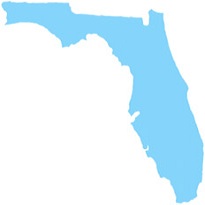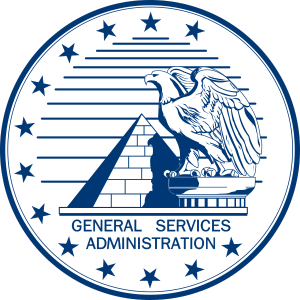 The U.S. Department of Justice announced yesterday that Jacksonville-based North Florida Shipyards and its president will pay the federal government $1 million to resolve a relator’s allegations that they violated the False Claims Act by creating a fraudulent company in order to win contracts from the U.S. Coast Guard intended for Service Disabled Veteran Owned Small Businesses (“SDVOSB”). In order to qualify as a SDVOSB on Coast Guard ship repair contracts, a company must be owned and managed by service disabled veterans, and must perform a majority of the labor. Ind-Mar Services Inc. (“Ind-Mar”), however, was allegedly set up to serve as a sham contracting vehicle. The company allegedly had no employees or facilities and North Florida Shipyards actually performed all of the work and received all of the profits under the awarded contracts. As a result of the scheme, Ind-Mar was falsely awarded contracts to repair five ships between 2010 and 2013. Continue reading ›
The U.S. Department of Justice announced yesterday that Jacksonville-based North Florida Shipyards and its president will pay the federal government $1 million to resolve a relator’s allegations that they violated the False Claims Act by creating a fraudulent company in order to win contracts from the U.S. Coast Guard intended for Service Disabled Veteran Owned Small Businesses (“SDVOSB”). In order to qualify as a SDVOSB on Coast Guard ship repair contracts, a company must be owned and managed by service disabled veterans, and must perform a majority of the labor. Ind-Mar Services Inc. (“Ind-Mar”), however, was allegedly set up to serve as a sham contracting vehicle. The company allegedly had no employees or facilities and North Florida Shipyards actually performed all of the work and received all of the profits under the awarded contracts. As a result of the scheme, Ind-Mar was falsely awarded contracts to repair five ships between 2010 and 2013. Continue reading ›
Articles Posted in Government Contracts
Northrop Grumman Unable to Dismiss Government Contract Fraud Claims
 Yesterday, a federal judge in Illinois refused to dismiss the majority of a relator’s allegations brought under the False Claims Act against Northrop Grumman Corporation (“Northrop”). The complaint alleges that the global security company and one of the largest defense contractors in the world defrauded the federal government in connection with a program designed to create technology to protect commercial aircraft from missile attacks. The program was initiated after two shoulder-fired missiles almost hit an Israeli commercial airline taking off from Kenya. The Counter-Man Portable Air Defense System Development and Demonstration Program (“Counter-MANPADS”) would allegedly be used to as a way to protect civilian airplanes from terrorist attacks. But, under its “best efforts” contract with the government, Northrop allegedly fraudulently represented that it was doing its best to complete tasks in order to falsely collect payments for project milestones.
Yesterday, a federal judge in Illinois refused to dismiss the majority of a relator’s allegations brought under the False Claims Act against Northrop Grumman Corporation (“Northrop”). The complaint alleges that the global security company and one of the largest defense contractors in the world defrauded the federal government in connection with a program designed to create technology to protect commercial aircraft from missile attacks. The program was initiated after two shoulder-fired missiles almost hit an Israeli commercial airline taking off from Kenya. The Counter-Man Portable Air Defense System Development and Demonstration Program (“Counter-MANPADS”) would allegedly be used to as a way to protect civilian airplanes from terrorist attacks. But, under its “best efforts” contract with the government, Northrop allegedly fraudulently represented that it was doing its best to complete tasks in order to falsely collect payments for project milestones.
Trinity Industries in Court Over Allegedly Shoddy Guard Rails Used All Over the U.S.
 On Monday, the False Claims Act trial against Trinity Industries (“Trinity”) was scheduled to restart in federal court in Texas after a mistrial was declared in July, attributed in part to the judge’s “serious concerns” over a company official’s truthfulness while under oath. The case was initiated on behalf of the government in 2012 by relator Joshua Harman, who is alleging that the Texas-based company failed to disclose to the Federal Highway Administration that it made a small change in the design of the guardrails that it sells to state highway departments across the United States. This failure to receive pre-approval has allegedly led to Trinity’s fraudulent receipt of hundreds of millions of dollars in reimbursements, predicating liability under the False Claims Act. According to the company’s 2013 annual report, its sales of highway products, including guardrails, amounted to $336 million. If liable, Trinity could be forced to pay close to $1 billion in damages and penalties.
On Monday, the False Claims Act trial against Trinity Industries (“Trinity”) was scheduled to restart in federal court in Texas after a mistrial was declared in July, attributed in part to the judge’s “serious concerns” over a company official’s truthfulness while under oath. The case was initiated on behalf of the government in 2012 by relator Joshua Harman, who is alleging that the Texas-based company failed to disclose to the Federal Highway Administration that it made a small change in the design of the guardrails that it sells to state highway departments across the United States. This failure to receive pre-approval has allegedly led to Trinity’s fraudulent receipt of hundreds of millions of dollars in reimbursements, predicating liability under the False Claims Act. According to the company’s 2013 annual report, its sales of highway products, including guardrails, amounted to $336 million. If liable, Trinity could be forced to pay close to $1 billion in damages and penalties.
Boeing Pays $23 Million to Settle Allegations that it Overbilled the U.S. Air Force
 The U.S. Department of Justice announced on Friday that the Boeing Company (“Boeing”) has agreed to pay $23 million to the federal government to settle allegations made by a number of relators that the aerospace and defense industry giant submitted false claims for labor charges in connection with its contracts with the U.S. Air Force to maintain, repair, and modify the C-17 Globemaster aircraft. Boeing is the world’s largest combined manufacturer of commercial jetliners and military aircraft and the world’s second largest defense company. The C-17 Globemaster aircraft, which is both manufactured and maintained by Boeing, is one of the military’s major systems for transporting troops and cargo throughout the world. The whistleblowers will collectively receive $3.9 million for their role in the litigation. The settlement came as a result of the unsealing of the complaint and the government’s election to intervene in the case. Continue reading ›
The U.S. Department of Justice announced on Friday that the Boeing Company (“Boeing”) has agreed to pay $23 million to the federal government to settle allegations made by a number of relators that the aerospace and defense industry giant submitted false claims for labor charges in connection with its contracts with the U.S. Air Force to maintain, repair, and modify the C-17 Globemaster aircraft. Boeing is the world’s largest combined manufacturer of commercial jetliners and military aircraft and the world’s second largest defense company. The C-17 Globemaster aircraft, which is both manufactured and maintained by Boeing, is one of the military’s major systems for transporting troops and cargo throughout the world. The whistleblowers will collectively receive $3.9 million for their role in the litigation. The settlement came as a result of the unsealing of the complaint and the government’s election to intervene in the case. Continue reading ›
Qui Tam Complaint Survives UChicago Argonne’s Motion to Dismiss
Last week, a federal judge in Illinois retained the majority of a relator’s allegations in a complaint filed under the False Claims Act against UChicago Argonne LLC after the company sought to dismiss the case. Originally filed in 2012 and unsealed in December 2013, the complaint details how the research lab, managed and operated by UChicago Argonne, engaged in an elaborate scheme to defraud the government by overcharging it for work done under federally-funded contracts for agencies. These agencies included the U.S. Department of Defense, the U.S. Department of Energy (“DOE”), and the U.S. Department of Transportation. UChicago Argonne is the prime contractor for Argonne National Laboratory. The laboratory employs more than 12,000 scientists and engineers who perform nuclear engineering, basic energy science, biological and environmental research, hard x-ray science, high energy physics, and computational and technological research at a facility outside Chicago. Continue reading ›
Natural Disaster Fraud Involving FEMA
 Any large influx of federal aid associated with disaster relief presents the potential for fraud. Fortunately, whistleblowers who report these abuses under the False Claims Act stand to share in between 15% and 30% of the government’s recovery. After a natural disaster, the federal government, through the Federal Emergency Management Agency (FEMA), contracts with private companies to provide the affected communities with food, water, shelter, clothing, cleanup, etc. In addition, FEMA administers national insurance policies for those that live in flood prone areas. The need to act quickly combined with a lack of government oversight often results in the submission of fraudulent payment claims to the federal government, especially in large disasters. Examples of potential natural disaster fraud include:
Any large influx of federal aid associated with disaster relief presents the potential for fraud. Fortunately, whistleblowers who report these abuses under the False Claims Act stand to share in between 15% and 30% of the government’s recovery. After a natural disaster, the federal government, through the Federal Emergency Management Agency (FEMA), contracts with private companies to provide the affected communities with food, water, shelter, clothing, cleanup, etc. In addition, FEMA administers national insurance policies for those that live in flood prone areas. The need to act quickly combined with a lack of government oversight often results in the submission of fraudulent payment claims to the federal government, especially in large disasters. Examples of potential natural disaster fraud include:
- Receiving federal funding for services not rendered or goods not provided
- Receiving or providing kick-backs or other benefits in awarding government funding
- Receiving federal funds for expenses paid for by another source
- Inflating the cost of goods and services paid for by federal funding
- Misclassifying expenses or falsifying records to justify federal aid
- Collusion or price fixing schemes in connection with bidding on federal contracts; or
- Using federal funds for personal or other non-qualifying uses
Drug and Alcohol Rehab Center Charged with Conspiracy to Violate the False Claims Act
 Yesterday, the FBI announced that Clean on Green PLLC (“Clean on Green”), a North Carolina drug and alcohol treatment center, its owner, and two of its employees have been indicted by a grand jury on bribery and conspiracy charges in connection with the treatment center’s contracts with the U.S. Probation Office. According to the indictment, each defendant was charged with one count of conspiracy to violate the federal False Claims Act.
Yesterday, the FBI announced that Clean on Green PLLC (“Clean on Green”), a North Carolina drug and alcohol treatment center, its owner, and two of its employees have been indicted by a grand jury on bribery and conspiracy charges in connection with the treatment center’s contracts with the U.S. Probation Office. According to the indictment, each defendant was charged with one count of conspiracy to violate the federal False Claims Act.
Clean on Green had contracts with the U.S. Probation Office, the community corrections arm of the judiciary that administers probation and supervised release under federal law. The contracts required the treatment center to collect urine samples from individuals on pretrial release, supervised release, parole, or probation and to test the samples for controlled substances. The results were then to be reported to the U.S. Probation Office. The contract also required the treatment center to provide substance abuse assessments and counseling services to those under federal supervision. Between 2010 and 2012, Clean on Green allegedly failed to follow urine collection protocol to ensure that the test results were accurate and reliable. The reliability of such tests were essential in determining whether or not conditions of probation, release, or parole were being met. Individuals were allegedly allowed to submit false urine samples to avoid the detection of a controlled substance. Over the same time period, the treatment center and its employees allegedly allowed individuals to falsify sign in and sign out records to show attendance at required counseling sessions that were not actually attended. In some cases, employees of the treatment center received bribes to in exchange for allowing individuals to bypass the drug tests and required counseling sessions. Falsified forms and invoices for services provided were then allegedly submitted to the U.S. Probation Office.
Although the investigation in this case led to criminal charges, the federal government relies heavily upon civil actions by private citizens under the qui tam provisions of the False Claims Act to help uncover fraud that might have otherwise gone undetected. The statute prohibits the submission of false claims for government money or property. The False Claims Act awards a private citizen that is acting as a whistleblower (also known as a relator) between 15% and 30% of any final judgment or settlement and provides considerable protection from employer retaliation.
Supplies Now, Inc. Pays $270,000 to Settle Allegations that it Violated the False Claims Act
 On Monday, the General Services Administration’s (“GSA”) Office of Inspector General announced a $270,000 settlement with Supplies Now, Inc. (“Supplies Now”) to resolve allegations that the company violated the False Claims Act. The GSA alleged that Supplies Now falsely certified compliance with the Trade Agreements Act when it won a contract with the GSA to supply four federal buildings in Illinois with lamps.
On Monday, the General Services Administration’s (“GSA”) Office of Inspector General announced a $270,000 settlement with Supplies Now, Inc. (“Supplies Now”) to resolve allegations that the company violated the False Claims Act. The GSA alleged that Supplies Now falsely certified compliance with the Trade Agreements Act when it won a contract with the GSA to supply four federal buildings in Illinois with lamps.
Contractor Malcolm Wilson lost to Supplies Now in the competitive bidding process and suspected that the company may have won by submitting an estimate using prices of lamps manufactured in the People’s Republic of China (“China”). GSA Federal Supply Schedule Contracts are subject to the Trade Agreements Act, which can restrict the procurement of goods and services for government contracts. All products listed in the contract must be manufactured or substantially transformed in one of the designated countries. These countries include World Trade Organization Government Procurement Agreement countries, Free Trade Agreement countries, Least Developed countries, and Caribbean Basin countries. China is not a designated country. Pursuant to the Freedom of Information Act, Wilson filed a disclosure request with the U.S. Army Corps of Engineers, the agency responsible for overseeing the project, to learn the model of the lamps being provided by Supplies Now. Upon receiving the information, Wilson sent an email to the manufacturer of the lamps to find out where the products were made and was informed that they were made in China.
Wilson subsequently filed suit on behalf of the United States under the qui tam (or whistleblower) provisions of the False Claims Act. A whistleblower complaint is filed under seal and served upon the government. The government may then exercise its right to intervene following an investigation of the allegations. In this case, the settlement with Supplies Now was reached following the Justice Department’s decision to intervene and assume primary responsibility for pursuing the litigation. A whistleblower (also known as a relator) can, however, proceed with their claims even if the government declines to intervene. A successful suit entitles the relator to up to 30% of any final judgment or settlement. Wilson’s share of the settlement in this case has not yet been determined.
Telecommunications Company Accused of Fraudulently Receiving $45 Million Government Grant to Provide Internet Service
 On Friday, a federal judge denied a motion to dismiss a whistleblower’s qui tam complaint that alleged that Bluebird Network LLC (“Bluebird”) violated the federal False Claims Act when it fraudulently received a $45 million grant from the government to provide broadband service to underserved areas and when it subsequently terminated the whistleblower as an act of retaliation for voicing his concerns regarding the alleged violation. In denying the motion to dismiss, the judge emphasized that the relator had provided sufficient information and detail for each of his allegations.
On Friday, a federal judge denied a motion to dismiss a whistleblower’s qui tam complaint that alleged that Bluebird Network LLC (“Bluebird”) violated the federal False Claims Act when it fraudulently received a $45 million grant from the government to provide broadband service to underserved areas and when it subsequently terminated the whistleblower as an act of retaliation for voicing his concerns regarding the alleged violation. In denying the motion to dismiss, the judge emphasized that the relator had provided sufficient information and detail for each of his allegations.
Relator Martin Schell was employed by Bluebird as the Vice President of Business Development starting in October 2010, and later as the Vice President of Operations until he was terminated in January 2011. In his complaint, Schell alleged that the company knowingly made false statements to the National Telecommunications and Information Administration (“NTIA”), an agency of the U.S. Department of Commerce, in order to gain a $45 million grant from the American Reinvestment Recovery Act Broadband Technology Opportunities Program. The broadband program is part of the 2009 stimulus package, enacted to promote economic development in rural communities with limited or no access to broadband internet.
Schell’s complaint alleges that Bluebird falsely represented that northern Missouri was an underserved area, even though there are a “plethora” of service providers in the area. The complaint also alleges that in order to satisfy one condition of the government grant, Bluebird provided a letter that was executed as a “personal favor” from a local bank despite the bank having no intention of supplying the funds. Schell’s complaint also contends that Bluebird falsely maintained that it had satisfied a grant condition of receiving an in-kind contribution from the State of Missouri when it had in fact received such contribution from the state through a separate transaction, in exchange for internet service below market value.
United States Intervenes in False Claims Act Case Against Lance Armstrong
 The United States Department of Justice (“DOJ”) has filed a complaint in D.C. federal court against the former seven-time Tour de France champion cyclist Lance Armstrong, alleging that Mr. Armstrong defrauded the United States through use of performance-enhancing drugs. The complaint in the case, U.S. ex rel. Floyd Landis v. Tailwind Sports Corp., contains six counts, including violations of the False Claims Act, as well as common law claims of fraud and unjust enrichment. DOJ has intervened in a complaint filed under the qui tam (whistleblower) provisions of the False Claims Act by Armstrong’s former teammate, Floyd Landis. In addition to Armstrong, the named defendants in the case include Armstrong’s former team manager Johan Bruyneel, Tailwind Sports Corp. (owner of Armstrong’s cycling team), and Thomas Weisel, who was the founder and principal investor in Tailwind. A claim for breach of contract was brought against Tailwind.
The United States Department of Justice (“DOJ”) has filed a complaint in D.C. federal court against the former seven-time Tour de France champion cyclist Lance Armstrong, alleging that Mr. Armstrong defrauded the United States through use of performance-enhancing drugs. The complaint in the case, U.S. ex rel. Floyd Landis v. Tailwind Sports Corp., contains six counts, including violations of the False Claims Act, as well as common law claims of fraud and unjust enrichment. DOJ has intervened in a complaint filed under the qui tam (whistleblower) provisions of the False Claims Act by Armstrong’s former teammate, Floyd Landis. In addition to Armstrong, the named defendants in the case include Armstrong’s former team manager Johan Bruyneel, Tailwind Sports Corp. (owner of Armstrong’s cycling team), and Thomas Weisel, who was the founder and principal investor in Tailwind. A claim for breach of contract was brought against Tailwind.
Under the False Claims Act, entities which submit (or cause to be submitted) false claims for payment to the government are liable for treble damages and civil penalties of between $5,500 and $11,000 per violation. The application of the Act continues to broaden, particularly in the wake of Congress’s passage of the Fraud Enforcement and Recovery Act (“FERA”) (2009), the Dodd-Frank Wall Street Reform and Consumer Protection Act (2010) and the Patient Protection and Affordable Care Act (2010). The recent congressional enactments have given impetus to the government’s effort to hold violators liable in the realms of mortgage and lending fraud as well as fraud and abuse in the health care sector. FERA, in particular, heightened the protections against employer retaliation contained in the False Claims Act as the United States encourages private individuals with knowledge of fraud to sue under the Act’s qui tam provisions. Whistleblowers (known as “relators”) sue on behalf of the government, and must disclose the allegations in the qui tam complaint to the DOJ. After an initial investigatory period, the United States may either elect to intervene in a relator’s complaint or decline to do so, but in either case the private suit may go forward. Qui tam complaints are a crucial vehicle by which private citizens may supplement the necessarily limited enforcement capacity of the federal government; employees and other individuals with knowledge on the ground are often better-situated than the government to police violations of the False Claims Act.
In Landis’s original complaint, he alleged that Armstrong knowingly contravened his agreement with the U.S. Postal Service, from which Armstrong’s team accepted money. As part of the agreement, Armstrong promised not to engage in the use of any illicit performance-enhancing drugs; it is this sponsorship agreement which gives rise to potential False Claims Act liability. Under the contract with the U.S. Postal Service, the government paid a total of $30.6 million; the government’s total recovery in a lawsuit against Armstrong could thus approach $100 million. Other named defendants in the suit are reported to be Thom Weisel, erstwhile head of the management company that owned Armstrong’s cycling team, and Johan Bruyneel, the former team director.
 Whistleblower Attorneys Blog
Whistleblower Attorneys Blog

